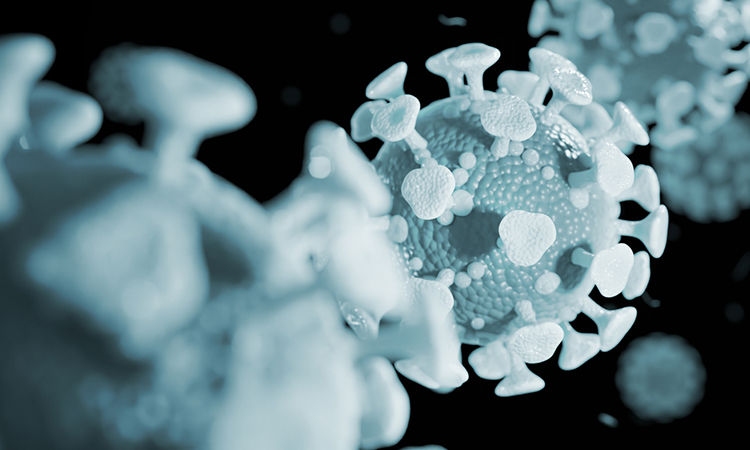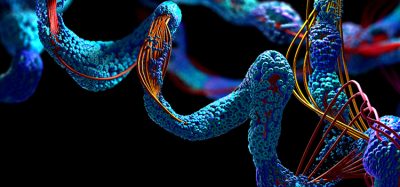Drug target to tackle COVID-19 inflammatory processes identified
Posted: 2 December 2020 | Victoria Rees (Drug Target Review) | 1 comment
Researchers have shown that the presence of the inflammasome mediated by NLRP3 is a marker and drug target for COVID-19-related cytokine storms.

Researchers have demonstrated that an immune mechanism known as the inflammasome participates in the activation of the inflammatory process that can damage several organs and even lead to death during infection from SARS-CoV-2, the virus causing the COVID-19 pandemic. The study was conducted at the University of São Paulo (USP), Brazil.
According to the authors, the findings support the use of inflammasome activation as a marker of disease prognosis and as a potential therapeutic target in severe COVID-19.
“Drugs already approved for human use are capable of inhibiting inflammasome activation. These drugs can now be tested in the context of infection by SARS-CoV-2,” said Professor Dario Zamboni, principal investigator for the study. “The response to various pathogens involves inflammasome activation and most of the time this blocks the infection and protects the organism. However, in some COVID-19 patients, the defence system appears to be overactivated and we are now trying to understand why this happens.”
Zamboni emphasised that there is more than one kind of inflammasome and that what varies is the protein responsible for mediating activation of the protein complex. The team observed the presence of the inflammasome mediated by NLRP3, one of the most common and well-studied proteins. However, the highlighted that other kinds may also participate in the response to SARS-CoV-2.
The researchers conducted three sets of experiments; the first involved immune cells from healthy donors infected with SARS-CoV-2 in the laboratory. The only white blood cells used in the experiment were monocytes.
“The viral dose administered to the culture is considered low, roughly one virus per cell. Even so, 75 percent of the monocytes died after 24 hours, evidencing the virus’s destructive potential,” Zamboni said.
The presence of lactate dehydrogenase (LDH) in the culture medium told the researchers that the cells were dying by pyroptosis. The presence of cytokines IL-18 and IL-1β suggested that this serial cellular death was associated with activation of the NLRP3 inflammasome, which was confirmed by analysis under the microscope.
“When this kind of inflammasome is activated, the proteins that form the complex and are normally distributed throughout the cytoplasm, cluster together in what are called puncta, or specks, which can be observed under a microscope,” Zamboni said. “This, in turn, activates caspase-1, the enzyme that ‘processes’ the precursors of pro-inflammatory cytokines such as IL-18 and IL-1β so that they become ‘mature’ and active.”
The second set of experiments involved clinical samples from 124 patients undergoing treatment for moderate or severe COVID-19. The results were compared with data from patients hospitalised for other reasons, who served as a control group. The researchers performed immunoenzymatic tests (based on antigen-antibody reactions) and used molecular probes to confirm that the white blood cells from COVID-19 patients had much larger amounts of IL-18 and active caspase-1 on average.
They observed that puncta were more abundant in the immune cells of donors infected by SARS-CoV-2. Statistical analysis showed that the more evidence of inflammasome activation a patient displayed on admission to hospital, the worse the patient’s clinical progression and the higher the probability of death.
The third group of experiments used samples of lung tissue obtained from five people who died after being infected by SARS-CoV-2. The analysis evidenced the presence of white blood cells infected by the virus and puncta characteristic of the NLRP3 inflammasome inside the cells.
The group of researchers is now working to find out whether other kinds of inflammasome are involved in the response to the novel coronavirus and why the pathogen activates this immune mechanism so intensely.
The scientists are also testing the use of a drug to inhibit the NLRP3 inflammasome in patients with severe COVID-19. The preliminary results have been published on medRxiv.
“We’re looking for other drugs capable of inhibiting the NLRP3 inflammasome for testing in a clinical trial,” Zamboni said. “As we discover more about inflammasome activation mechanisms in COVID-19, we can identify drugs that reduce the inflammatory process more effectively.”
The findings were published in the Journal of Experimental Medicine.
Related topics
Cytokines, Disease Research, Drug Targets, Research & Development, Targets, Therapeutics
Related conditions
Covid-19
Related organisations
University of São Paulo (USP)
Related people
Professor Dario Zamboni








Olatec Therapeutics already has a NLRP3 Inflammasome inhibitor- dapansutrile (lab code OLT1177) enrolling patients in a Phase 2 COVID-19 clinical trial.